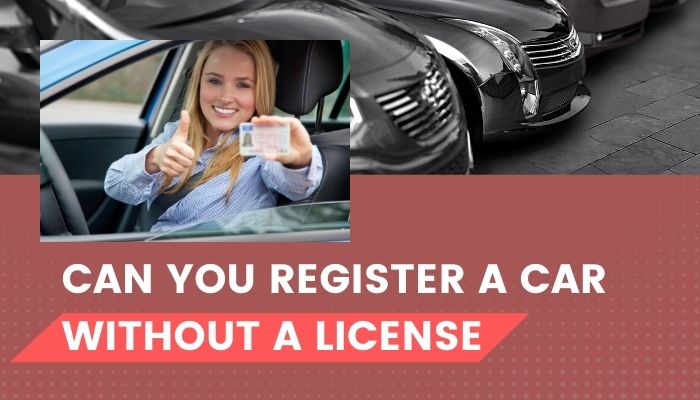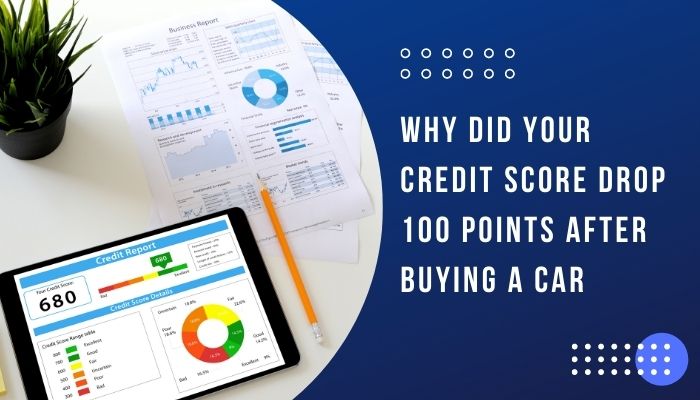How to Buying a Car for Business and Personal Use?
You could buy a car for business and personal use if you own a business. Even though the process is the same, it can be a little complicated when buying a vehicle for business use. The car you get will project on your company’s image either positively or negatively. Regardless of your business, you need a decent vehicle that projects an excellent image to your customers. Imagine meeting your clients in a beat-up old car. Regardless of how good your marketing strategy is, you might end up losing the deal.
Of course, after buying the vehicle, you could also put it to personal use. Since you’re the business owner, driving the vehicle to and from work wouldn’t hurt. If you’ve no idea how to buy a car for business and personal use, this article gives you everything you need to know. Keep reading for more information.
How to Buying a Car for Business and Personal Use?
There are so many things that go into choosing the best car make and model for business and personal use. It is essential to strike a balance when choosing the vehicle size. In the end, it shouldn’t be too big or too small. To reiterate, the vehicle you drive should project the right image of your business. Also, it would help if you considered your business’ expected future growth and activities. While buying a car for business and personal use may seem trickly, it is straightforward. The following are the steps you can take when buying a car for business and personal use:
Step 1: Setting a Budget
The first thing you should consider is whether you can afford to buy and maintain the vehicle and set a budget for it. Ask yourself how much money you’re willing to spend on fuel and maintenance annually. If you have a profitable business, paying for a suitable vehicle won’t be an issue. After buying it under the business, you can include it among your business costs.
Remember, purchasing a vehicle results in extra costs apart from the price, fuel, and maintenance. For example, you’ll need to pay for the vehicle’s insurance and registration fees. The maintenance, spare parts, repairs, and fuel costs vary from one car model to another. If you drive your car for at least 15,000 miles a year, you’ll pay $8,469 for maintenance on average. More significantly, heavier cars have high maintenance and fuel costs than their smaller counterparts.
Step 2: Choosing a Car Befitting Your Company’s Image
Choose a vehicle once you have set a budget to purchase a vehicle for the company and personal use. Typically, the type of car you can buy depends on your company and the type of business you do. For example, you might want a cheaper vehicle that you aren’t ready to show off or one that’s fancy enough to impress your high-end clients.
Be sure to choose a car that makes sense and fits your company’s image. For example, buying a mean-looking truck makes perfect sense if you’re into construction. If you have a real-estate business, an SUV will do just nicely. Before choosing a vehicle, ask yourself the following three questions:
- Who will drive the vehicle?: Do you need a vehicle that you can also drive for personal use? In that case, you should be careful when choosing the vehicle since it can affect the amount of taxes written off. Monthly payment also depends on who drives the vehicle. If all you want is to track mileage, why don’t you settle for a staff car with mileage limits?
- For what function is the vehicle?: What kind of car does your business need? Is it a sedan, truck, van, or SUV? If functionality isn’t essential, you could purchase a vehicle to impress your high-end clients. If you also need the vehicle for personal use, a sportscar is the best choice.
- Who’ll Own the Vehicle?: Even though you’re buying a vehicle for business and personal use, you should register the title to your business. That’s the only way to get a tax advantage on the vehicle. also, you’ll pay less for insurance if you register the vehicle under your business name
Step 3: Determining the Size of the Car
While you may want an aesthetically-refined German machine, there comes a time when the vehicle should do more than impress your clients. For instance, it should be large enough to carry several passengers and cargo. Whenever five of you are going out of the office to meet a client, you should fit into the vehicle without feeling too pressed.
Think about the likely trips the car will make and assess the passenger space you need. Perhaps a seven-seater SUV or mini-van is what you need. Or, it would help if you had a small five-seater sedan. Careful consideration of your personal and business needs will lead you to the right vehicle.
Step 4: Considering the Necessary Add-ons
It is also essential to consider the optional extra, which can be beneficial and practical in many ways. Their inclusion in the package also helps to limit depreciation and boost the vehicle’s safety standards. If you are making long trips across the country, get a vehicle with satellite navigation. Otherwise, a local company doesn’t necessarily need a GPS. That’s because you’ll be driving it in familiar surroundings where you do not need navigation assistance.
While at it, also consider getting a vehicle with decorative features like metallic paint and alloy wheels. Even though non-essential, these features greatly ward off depreciation and project a positive image of your business. If you want a vehicle to carry employees regularly, make sure it has passenger airbags.
Step 5: Matching the Vehicle to Your Brand
Since a company car represents your brand, it should be aesthetically appealing. As people see and interact with the vehicle, they’ll begin to regard your business positively. In the end, you can impress and gain a good number of customers. If you have other ideas about your brand representation, buy a car that doesn’t stand out from the rest. However, there’s no way potential clients will notice your business.
Step 6: Comparing with the Competition
As part of what you do to compete with other businesses, you need a comparable standout vehicle. How would you feel driving around in a run-down vehicle when your competitors have large machines? However, you should be careful not to spend too much money buying and maintaining a high-end vehicle to show off your brand. Even so, you don’t have to settle with feeling inferiors to your competitors. Therefore, be sure to put your best foot forward to stand out in a competitive market by choosing the right vehicle while avoiding overspending.
Step 7: Considering the Vehicle’s Functionality
As earlier observed, a business vehicle should serve a specific purpose, and that’s what you should pursue. Be sure to search for a vehicle that perfectly matches your ambitions and intentions. You’ll likely get many offers and bargain prices. While that’s good, the most crucial question is whether the vehicle you get can serve the purpose for which you want it. A mini-van will be fine if all you need is a nine-to-five shuttle. Get a five-seater sports car if you want a car for business and personal use.
Step 8: Prioritizing Fuel Economy
Just because it’s a company vehicle doesn’t mean it should be a fuel-guzzler. If you make the mistake of buying a thirsty vehicle, you’ll end up spending too much money on the fuel. While you may want a fancy car for business and personal use, it makes no economic sense when it has a 5.0-liter V-8 engine. How would you justify the money you spend on fuel commuting to and from the office? Before buying the vehicle, go online and check its Mile Per Gallon (MPG) calculations. With that, you can save a few bucks by avoiding overspending on fuel.
Step 9: Securing Business Car Insurance
Once you’ve acquired a vehicle for business and personal use, make sure it has insurance. Instead of a standard policy, which is excellent for a personal car, go for a policy the provides the protection you need for the car. Usually, business-level insurance costs more than personal insurance, tempting you to go for the cheaper option. If you secure a standard policy for a business car, you could end up without insurance after the policy’s invalidation.
When getting business insurance, you should consider any of the following three categories:
- Business use by you
- Business use by all drivers
- Commercial traveling policies
Once you’ve determined the level of insurance you need, choose one that’s the most appropriate for your company. If all you need is a vehicle for you to drive, then the “business use by you” policy will suffice. However, if other drivers within the company will drive the vehicle, get the “business use by all drivers” policy. A commercial traveling policy will suffice for vehicles that carry staff, such as company mini-vans.
Learn More: How to Buy a Car with Bad Credit and No Co-Signor?
Benefits of Buying a Car for Business and Personal Use
The title to a car for business and personal use will be under your company’s name. In that case, you have a personal car but registered under the company’s name. The following are the benefits you can enjoy from this arrangement:
- All Expenses to the Business: Since your company owns the car, all expenses, including insurance, taxes, and gas, are business deductible. In that case, you do not have to pay anything out of your pocket to use the vehicle.
- A Business Fixed Asset: Once you buy the vehicle, it becomes a fixed asset. With that, the depreciation on the vehicle gets factored into the business’s books of accounts. Therefore, reselling the vehicle doesn’t result in a loss to you but to the company.
- Tax Bonuses: In some states, vehicles that exclusively serve business purposes are eligible for annual tax bonuses. For example, vehicles that have been in operation from October 2017 to December 2026 qualify for a depreciation bonus of $18,000 in year one, $16,000 in year two, $9,600 in year three, and $5,700 for subsequent years until the car loses its value completely. There is no reason you shouldn’t buy a vehicle for your business with these savings.
Demerits of Buying a Car for Business and Personal Use
If you choose to buy a car for business and personal use, you’ll likely grapple with several demerits, including the following:
- Increasing Business Liabilities: Registering a car under your business can increase your liabilities, especially if you bought it with a car loan. Besides, lenders could charge higher interest when financing a business to purchase a car.
- Complicated Insurance: Coverage for a company vehicle requires proper auto and liability insurance. If not, then liability for the accidents the vehicle causes falls on the business.
- Restrictions on Vehicle Use: You’ll likely face restrictions to use the vehicle exclusively for business purposes. If you want one for business and personal use, you might pay a personal use tax.
Learn More: How to Buy a Car from a Private Seller with Cash?
Conclusion
Buying a car for business and personal use isn’t complicated. By paying attention to the factors discussed in this article, you’ll find the process relatively easy. If you intend to use the vehicle for business and personal purposes, some states require you to pay a personal use tax. However, that’s a small cost to pay, especially if you aren’t ready to buy a particular personal vehicle.
Frequently Asked Questions (FAQ)
Can I buy a company vehicle for personal use?
Yes. You can buy a company vehicle for personal use, especially if you’re ready to pay personal use tax. With that, you can allow your employees to have minimal personal use, especially on the daily commute to and from the office.
Can I buy a car for my business and write it off?
Yes. You can buy a car for your business and write it off. However, you’ll have to make your business tax write-off for the cost of the vehicle used in business within its first year.
Can I buy a car as a sole proprietor?
No. you cannot buy a business car as a sole proprietor. At the minimum, your company should be an incorporated limited liability company or a corporation.




